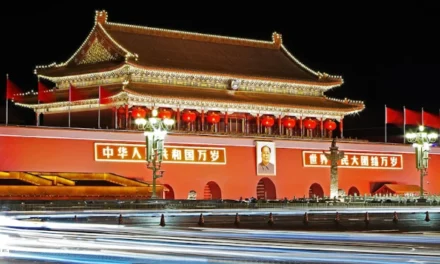The relationship between South Korea and Israel has been a topic of interest and debate, with many questioning the extent of Korea’s support for the Jewish state. This comprehensive article delves into the nuances of their diplomatic, economic, and cultural ties, shedding light on the complexities of this strategic partnership.
The Establishment of Diplomatic Relations: A Milestone in Korea-Israel Ties
South Korea and Israel established diplomatic relations in 1962, marking a significant milestone in their bilateral relationship. This move was seen as a strategic decision by both countries, as they sought to strengthen their global alliances and economic ties. Despite the geographical distance and cultural differences, the two nations recognized the potential for mutually beneficial cooperation.
The Complexities of Korea’s Stance on the Israeli-Palestinian Conflict
While South Korea has maintained diplomatic relations with Israel, it has also sought to navigate the sensitive political landscape of the Israeli-Palestinian conflict. The Korean government has officially expressed support for a two-state solution, recognizing the legitimate aspirations of both Israelis and Palestinians. However, Korea has faced challenges in balancing its stance, as it aims to maintain good relations with Arab and Muslim nations in the region.
Contemporary Dynamics
Economic and Trade Cooperation: A Cornerstone of Korea-Israel Relations
One of the pillars of the Korea-Israel relationship has been their robust economic and trade cooperation. Both countries have recognized the potential for mutually beneficial partnerships in various sectors, including technology, innovation, and defense.
South Korea has been a significant investor in Israel’s thriving tech ecosystem, with Korean companies such as Samsung and LG establishing research and development centers in the country. Additionally, bilateral trade agreements have facilitated the exchange of goods and services, fostering economic growth for both nations.
Military and Security Cooperation: A Strategic Partnership
South Korea and Israel have also developed a strategic partnership in the realm of military and security cooperation. The two countries have engaged in joint exercises and intelligence sharing, recognizing the importance of addressing common security challenges and global terrorism threats.
Israel’s advanced defense technology and expertise have been of particular interest to South Korea, as it seeks to bolster its military capabilities in the face of regional tensions. Conversely, South Korea’s defense industry has also contributed to Israel’s national security efforts, further solidifying their partnership.
Cultural and Academic Exchanges: Fostering Mutual Understanding
Beyond economic and security ties, South Korea and Israel have also fostered cultural and academic exchanges. Student exchange programs and collaborative research initiatives have facilitated the sharing of knowledge and ideas, promoting mutual understanding between the two nations.
Additionally, the influence of Korean pop culture (K-pop, K-dramas) has gained significant popularity in Israel, while Israeli cultural exports have also found their way into Korean society. These cultural connections have played a role in shaping public perceptions and fostering greater appreciation for each other’s traditions and values.
Public Opinion and Challenges
Korean Public Sentiment Towards Israel: Navigating Diverse Views
Public opinion in South Korea regarding Israel and the Israeli-Palestinian conflict has been diverse and evolving. While some Koreans have expressed support for Israel’s right to self-defense and security, others have voiced concerns over human rights issues and the treatment of Palestinians.
Factors influencing Korean attitudes towards Israel include historical experiences, religious beliefs, and media coverage. Both the South Korean and Israeli governments have made efforts to shape public perception and foster understanding, recognizing the importance of public support for their bilateral relationship.
Challenges and Criticisms: Addressing Contentious Issues
Despite the strategic partnership between South Korea and Israel, there have been contentious issues and criticisms surrounding Korea’s support for the Jewish state. Human rights organizations and advocacy groups have raised concerns over Israel’s treatment of Palestinians, particularly in the context of the ongoing conflict and the blockade of Gaza.
Additionally, some critics have questioned South Korea’s stance on the Israeli-Palestinian conflict, arguing that it has been too supportive of Israel’s actions or insufficiently critical of human rights violations. Addressing these challenges and promoting a more balanced and nuanced dialogue remains an ongoing effort for both governments.
Conclusion
The Future of Korea-Israel Relations: Prospects and Opportunities
As the world continues to evolve, the future of the Korea-Israel relationship holds both prospects and challenges. On the one hand, the two countries have demonstrated a commitment to deepening cooperation in areas such as technology, innovation, and sustainable development, recognizing the mutual benefits of collaboration.
However, ongoing regional tensions and the unresolved Israeli-Palestinian conflict pose potential obstacles that may strain the bilateral relationship. Navigating these challenges will require diplomatic finesse, open dialogue, and a willingness to address contentious issues with sensitivity and nuance.
Key Takeaways: Understanding the Complexities of Korea’s Support for Israel
In conclusion, the relationship between South Korea and Israel is multifaceted and complex, with various factors influencing the extent of Korea’s support for the Jewish state. While economic and security cooperation have been cornerstones of their partnership, the Korean government has also sought to maintain a balanced approach to the Israeli-Palestinian conflict.
Public opinion in South Korea has been diverse, reflecting the nuances of this intricate issue. Addressing challenges and criticisms surrounding human rights concerns and the treatment of Palestinians remains an ongoing effort for both governments.
As the world continues to grapple with global issues and regional conflicts, the future of the Korea-Israel relationship will likely be shaped by their ability to navigate these complexities while fostering mutual understanding and respect. Ultimately, a nuanced and balanced approach will be crucial in ensuring the longevity and strength of this strategic partnership.
FAQ: Does South Korea support Israel?
Yes, South Korea officially recognizes Israel as a country and maintains diplomatic relations with it.
How does South Korea view the Israel-Hamas conflict?
South Korea supports Israel’s right to defend itself against attacks by Hamas and other militant groups.
Does South Korea have an embassy in Israel?
Yes, South Korea has an embassy in Tel Aviv, the capital of Israel.
Has South Korea ever faced problems regarding its support of Israel?
South Korea has faced criticism from some groups for its support of Israel, particularly during periods of conflict with Palestine.
Does South Korea export any products to Israel?
Yes, South Korea exports various products to Israel, contributing to the economic relationship between the two countries.
How does South Korea’s stance on Israel compare to its stance on other Middle Eastern countries?
South Korea maintains friendly relations with countries like Saudi Arabia and the United Arab Emirates while also supporting Israel, demonstrating a balanced approach to the region.





